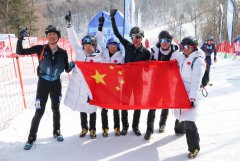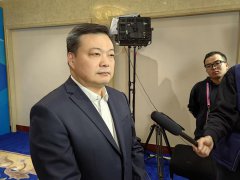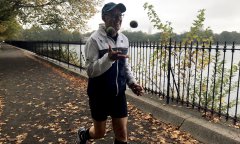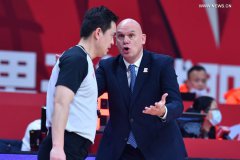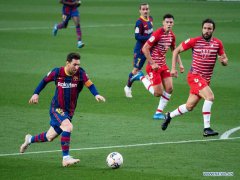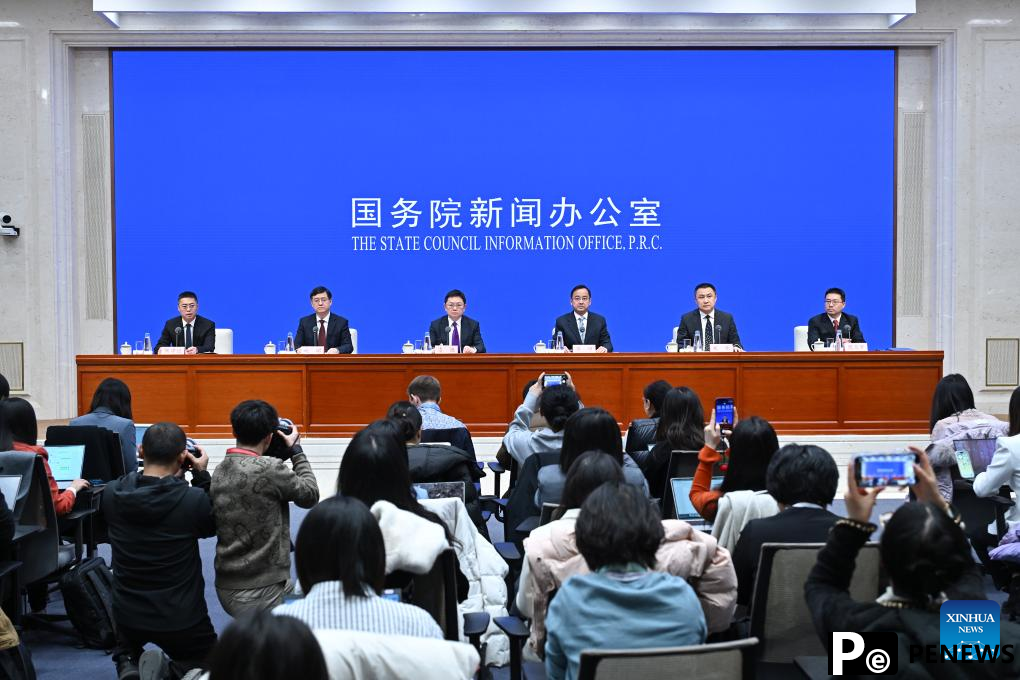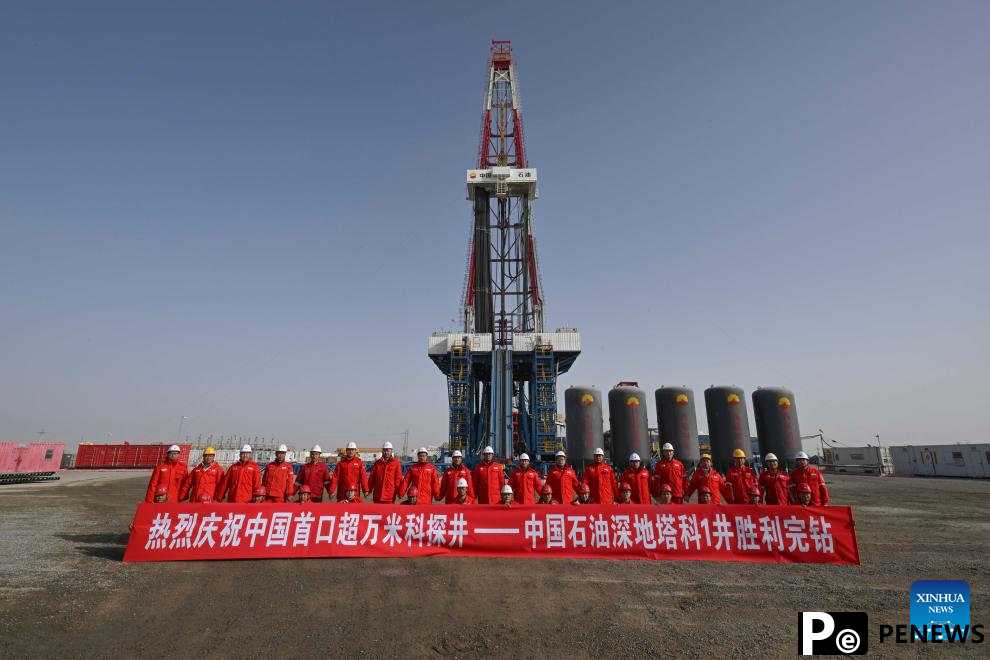Home>>
Hong Kong's sports medicine expertise lifts athletes to new heightsBy Stephy Zhang (China Daily) 11:25, February 24, 2025
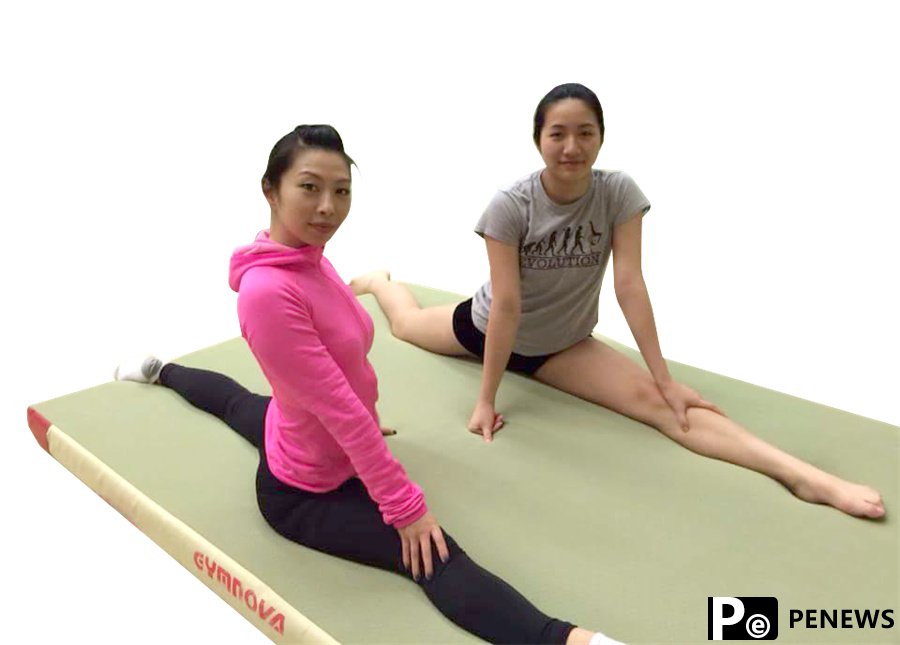
Angel Wong Hiu-ying (left) is back at a gym after ligament repair surgeries in Hong Kong in February 2016. (Photo/China Daily)
In 2022, Hong Kong squash player Abbie Leung Ka-huen faced a career crisis when a knee injury shattered her dreams at the Asian Junior Individual Championships. A year later, she made a remarkable comeback, clinching two medals in international competitions.
While the knee injury was minor, she still remembers the helplessness she felt when it happened. The tough situation was compounded by the lack of a sports therapist on-site to help her assess how bad it was.
"I didn't know why my knee was swelling, what to do to ease the pain in my leg, or whether I should continue to compete at full strength," Leung said.
Upon returning to Hong Kong, she immediately sought help from sports medicine specialists. After a year of rehabilitation, Leung successfully returned to the court, winning a silver medal at the 2023 Asian Junior Squash Team Championships, and the bronze at the 2024 Asian Junior Squash Individual Championships.
However, not every athlete is as fortunate as Leung.
In 2012, Angel Wong Hiu-ying became the first female Hong Kong gymnast to participate in Olympic Games. Three years later, while preparing for the 2016 Rio Olympics, she suffered a severe knee injury when attempting a landing, and tore all the cruciate ligaments in her left knee.
She was flown to Hong Kong and had multiple surgeries to painstakingly repair each ligament. For two years, Wong underwent intensive rehabilitation, including psychological risk assessment, and resumed rigorous training.
"During the time I was injured, I had a lot of negative thoughts. I would worry and feel anxious, as you don't really know what's ahead," she said.
Wong said facing such challenges at the peak of her gymnastics career was deeply disheartening, but added that injuries are a challenge every athlete must confront.
She has now returned to the sport and continues to represent Hong Kong in high-level competition. However, she has yet to achieve the results she desires.
Wong's physician, Patrick Yung Shu-hang, chairman of the Orthopedics and Traumatology Department at Chinese University of Hong Kong, said, "Such an injury would make it extremely challenging for an ordinary person to even return to normal walking, let alone for an athlete wanting to return to competition."
Renowned as a leading figure in sports medicine in Asia, Yung has treated numerous athletes, including Paris Olympics gold medal-winning fencers Edgar Cheung Ka-long and Vivian Kong Man-wai.
As high as 63 percent of Olympic athletes reported at least one significant injury related to their Olympic careers, according to the World Olympians Association's "Olympians Health Study" released in 2019. About one-third of them (32.4 percent) said they continued to experience pain, and 35.9 percent still faced functional limitations due to injuries sustained during their Olympic careers.
Jim Luk Tze-chung, an associate professor in the Sports and Recreation Department at the Technological and Higher Education Institute of Hong Kong, said increasing awareness about sports injuries has fueled the growth of the sports medicine industry, and also helped athletes unlock their potential and achieve better results.
Two decades ago, an athlete's injury could often signal premature retirement, Luk said. However, athletes today like Kong, the fencer, can overcome a knee injury through sports medicine, return to competition and win a gold medal.
Yung said a crucial aspect of sports medicine, beyond treating injuries and rehabilitation, is risk assessment, which can determine if there are risk factors for an individual's participation in a particular sport that could lead to potential injuries.
By assessing and controlling these factors through correct training and preparation, athletes can reduce their chances of getting injured, Yung said.
Lobo Louie Hung-tak, associate head of the Health and Physical Education Department at Education University of Hong Kong, said competition among elite athletes is intense, and enhancing sports rehabilitation and prevention can significantly increase their chances of success.
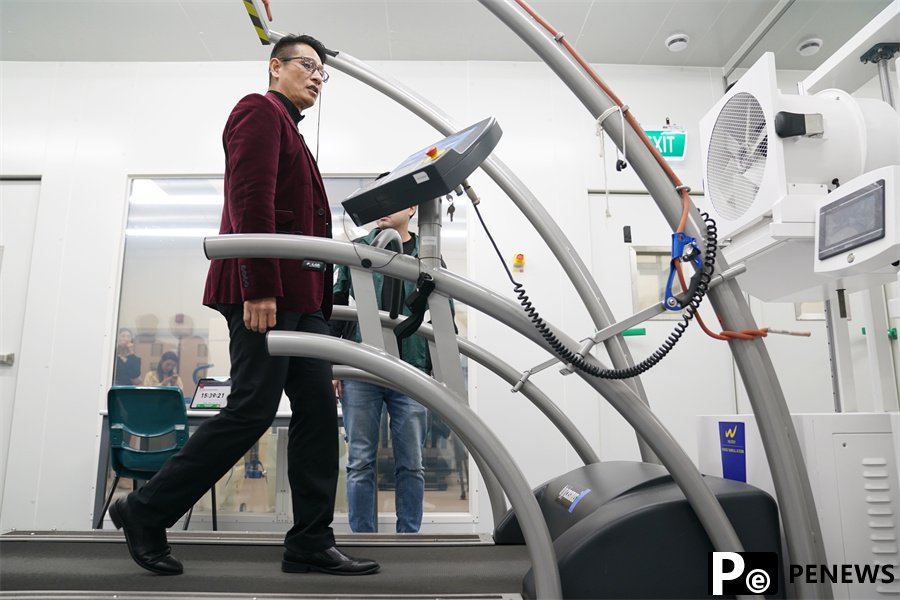
Lau Wing Chung, professor of the Department of Sport and Physical Education at Hong Kong Baptist University, tries research equipment on Jan 21 in Hong Kong. (Photo/Xinhua)
HK's leading role
Over the past 30 to 40 years, Hong Kong has been a leader in sports medicine in Asia, excelling in clinical practice, education and research, Yung said.
In 1984, the first sports injuries clinic in Hong Kong was established at Prince of Wales Hospital, which was also the first in the city to promote the development of arthroscopic surgery. The Sports Medicine and Sports Science Association of Hong Kong, established in 1988, aims to promote and advance the practice, education and research of medicine and science related to sports and exercise.
